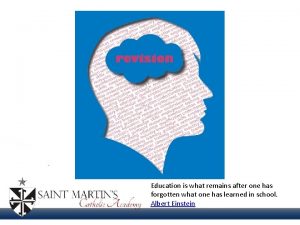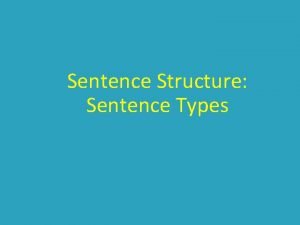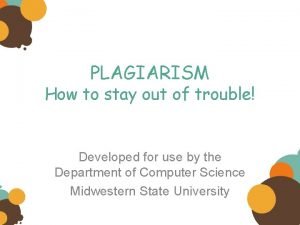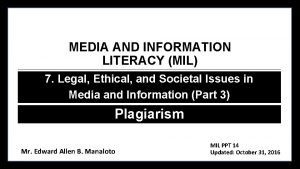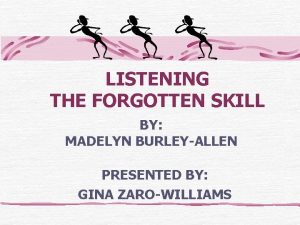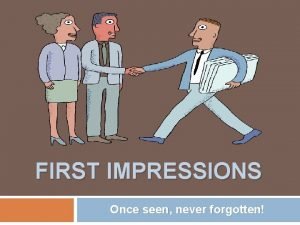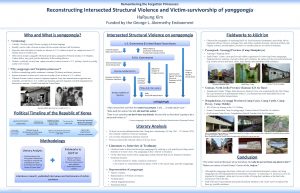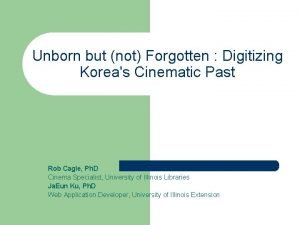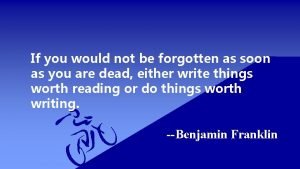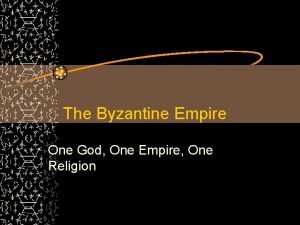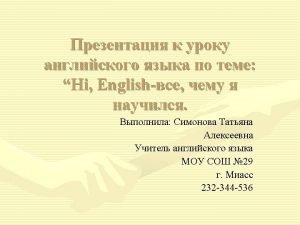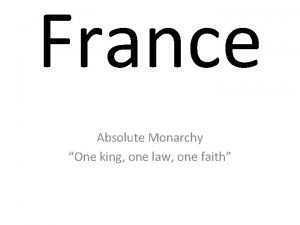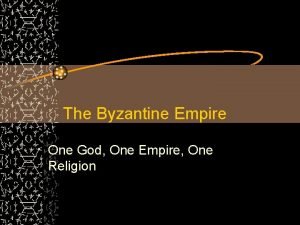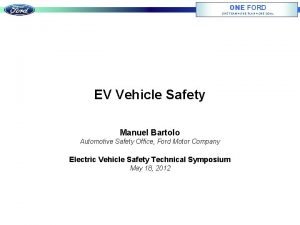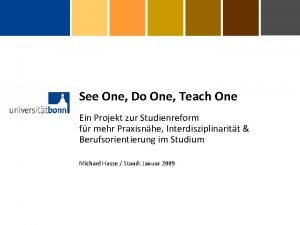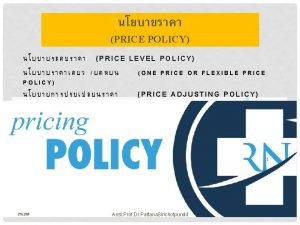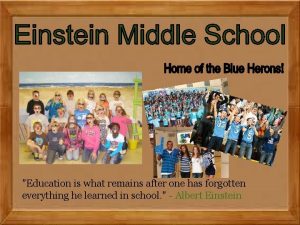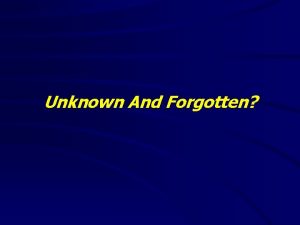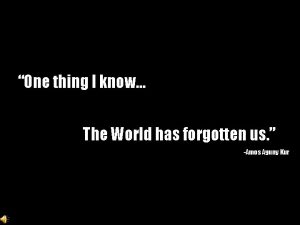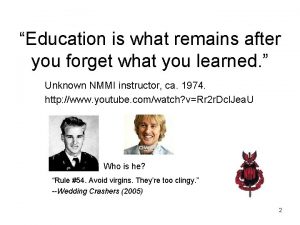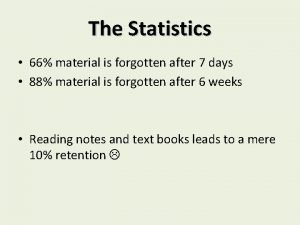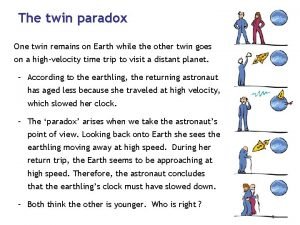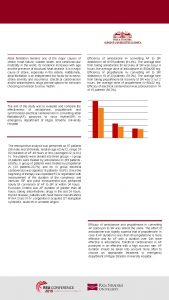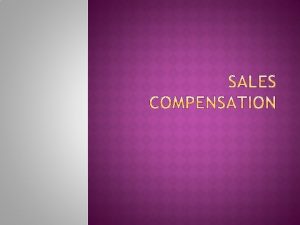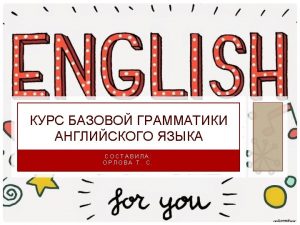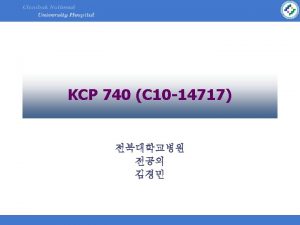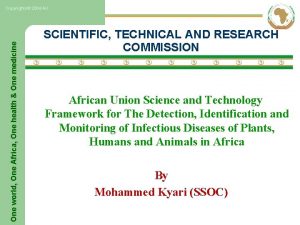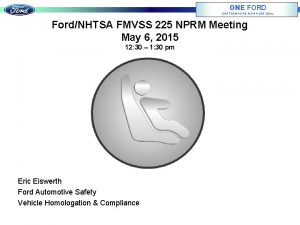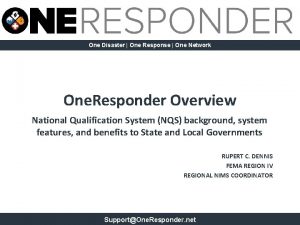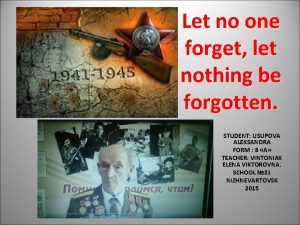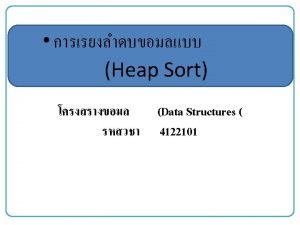Education is what remains after one has forgotten

























- Slides: 25

Education is what remains after one has forgotten what one has learned in school. Albert Einstein

What is revision Definition: Re – vision. . Means taking a second look at something. Education is _____ remains after one has forgotten what one has learned in school. WHO ?

Why Revise ? • To help you retain what you have learnt. • To re-learn anything you may have forgotten. • To make sure you learn / cover anything you may have missed due to a day off sick. ____ is what remains after one has forgotten what one has learned in school. Albert Einstein

Why do we forget? • Interference Theory. • Cue dependency. • Failure to store Theory. • Decay Theory. Education is what ______ after ____ has forgotten what one has learned in school. ______ Einstein

Education __ what ______ after ___ has _______ what one has learned in school.

Learning and Memory • Linking your learning – You must understand the topic. – Ask questions – it helps. – Get some context; • When did it happen? (Know the time line) • Why did it happen? • What changed as a result? Education __ what ______ after one has _______ what one __ learned __ school.

Learning and Memory 2 • Commit to Memory – Re-visit it – Teach it – Write it – Read about it – Listen to it – Watch it – Discuss it ____ is what remains _____ one has forgotten ____ one ______ in ______. Albert _______

Techniques to engage your memory • Team Up – Discuss it – Work together – Present what you know • Flash Cards – Short snappy summaries – Learn in small chunks – Get someone to test you ____ is ____ remains _____ one ___ forgotten ___ one ___ learned __ school. ______ Einstein

Techniques to engage your memory 2 • Learning Journals – Write a summary of a lesson or a topic in your own words. – This can be in any order. – It could be from a different point of view. • Visual approaches Try to think of a really memorable event. How would you describe it to someone else? The chances are your description might include a lot of sensory information – sounds, smells, tastes even, but probably you will mostly describe what you saw. Now think about that piece of Shakespeare or that quote you have to learn for History – imagine you were there. . ____ __ _______ after one _________ one ___ learned __ school. A_____ E______

Techniques to engage your memory 3 • Mind Maps – – Summarise a topic Include all key points Link ideas together Make it visual – Don’t spend too long on these. ____ is ____ remains _____ one ___ forgotten ___ one ___ learned __ school. ______ Einstein

Techniques to engage your memory 4 • Dynamic Display – Big Posters – Display prominently – Display in places you have to go to a lot. . . – Add to it as you go along – Use Prezi or Powerpoint to help ____ is _______ one ___ forgotten ___ ___ learned __ school. _______

Pop Quiz Upgrading answers If this is the answer. . . Total Recall Past Papers Open Book What remains after one has forgotten what one has learned in school?

Regular Returns Lots of flash cards in a draw and a lovely poster gathering dust under your bed will not work ! You have to keep going back and looking again. Education is ?

Learn it R 1 Learn it R 2 R 3 R 1 R 3 Education is what remains after one has forgotten what one has learned in school. Albert Einstein

Assess yourself • Traffic light each topic • Have someone else grade you. Education is ?

Your Plan • What do you need to revise? • What are the test requirements? • When are the assessments? YOU MUST BUILD A TIME TABLE. • What revision strategies work for you? Education is what remains after one has forgotten what one has learned in school. Albert Einstein

What to revise? • Make a list of what you have to revise for each topic. • Any areas that you know well and require little or no study, Highlight Green or Amber as appropriate. • Topics that need a lot of revision, Highlight Red. • Allocate more time to topics that need more revision. Education __ _______ ___ has forgotten ____ ___ _______ __ school. ________

Have Goals? • Having goals makes us more productive. Know what you need to do – then get on with it. • E. g. – I will have made a poster of all the area and volume formulae by 2: 00 pm. – I will have revised “Community Cohesion” by 3: 30 pm and prepared a set of Flash Cards to test myself with. E_______ i_ w___ r_____ a___ o__ h__ f______ w___ o__ h__ l_____ i_ s____. A_____ E______

Have Goals? • Having goals makes us more productive. Know what you need to do – then get on with it. • E. g. – I will have made a poster of all the area and volume formulae by 2: 00 pm. – I will have revised “Community Cohesion” by 3: 30 pm and prepared a set of Flash Cards to test myself with. Education is. . .

Making a revision Timetable • Invest some time in your plan. • Decide where you will revise. • Plan time for exercise and sleep. This is important. • Time spent; – Weekdays – 1 session of 2 – 3 hours per night – Weekends – 4 sessions of 2 – 3 hours per day plus 1 session of 2 hours on ONE evening.

When to revise what • Research shows – – – We revise better in the morning. The brain needs rest – take regular breaks. In your breaks – do not think deeply about things. Eat well but not too much. Mixed sessions of “Committing, Practising and Recalling” – – Tick off what you have done. RAG / assess what you have learned. Reward yourself. Take exercise. Education is. . .

Stratgegies • Down time. • Frequent short breaks – don’t work continuously for more than 1 hour. • Mix it up – mix the difficult bits with some easy revision. You’ll feel better. • Use on-line resources such as Bitesize, but don’t expect it to do the work for you.

Know the format • Past Papers are essential. • Practise, Practise. . . • Know the format; – – Essay Multiple choice Short answer Calc or Non Calc • Specialist language e. g. – “Justify”, “explore”, “evaluate”, “show that”, . . . A famous scientist wrote what he thought education was. Who was he and what did he say?


 Education is what remains after one has forgotten meaning
Education is what remains after one has forgotten meaning After me after me after me
After me after me after me If anyone desires to come after me
If anyone desires to come after me Isa rime
Isa rime It is an ancient mariner and he stoppeth one of three
It is an ancient mariner and he stoppeth one of three Simple subject
Simple subject Poor disguise plagiarism
Poor disguise plagiarism The self-stealer
The self-stealer Listening the forgotten skill
Listening the forgotten skill Once done never forgotten
Once done never forgotten Siachen the forgotten war
Siachen the forgotten war The forgotten princesses
The forgotten princesses Have you forgotten youtube
Have you forgotten youtube Not forgotten carry
Not forgotten carry Unborn but not forgotten
Unborn but not forgotten If you would not be forgotten as soon as you are dead
If you would not be forgotten as soon as you are dead Forgotten altar
Forgotten altar Forgotten core circuitry disassembler
Forgotten core circuitry disassembler Can hypnosis force people to act against their will
Can hypnosis force people to act against their will One empire one god one emperor
One empire one god one emperor One one little dog run
One one little dog run One king one law one faith
One king one law one faith One god one empire one emperor
One god one empire one emperor One team one plan one goal
One team one plan one goal See one do one teach one
See one do one teach one See one, do one, teach one
See one, do one, teach one
